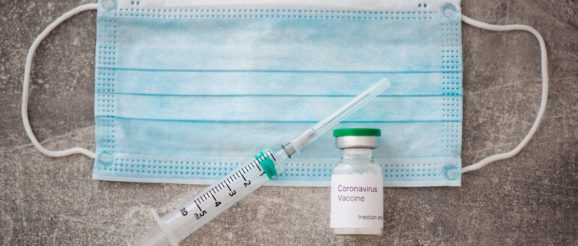International Approaches to Accelerating Innovation and Access in the Pandemic

“Voluntary patent pools, including a recent initiative by the Costa Rican government that will launch later this month, could be an effective tool to help bridge the gap on a worldwide scale during the pandemic.”
 In the wake of COVID-19, government officials around the world face unprecedented decisions about when and to what extent they should reopen their respective societies before effective anti-viral medications or vaccines have been developed, necessary regulatory approvals obtained, and those solutions are manufactured for public use. Fundamentally, such decisions will require a delicate balance between protecting public health and facilitating economic growth, which, as we have all been reminded this year, are deeply intertwined.
In the wake of COVID-19, government officials around the world face unprecedented decisions about when and to what extent they should reopen their respective societies before effective anti-viral medications or vaccines have been developed, necessary regulatory approvals obtained, and those solutions are manufactured for public use. Fundamentally, such decisions will require a delicate balance between protecting public health and facilitating economic growth, which, as we have all been reminded this year, are deeply intertwined.
Considering the ways in which national patent law regimes can impact that balance is particularly timely. Under ordinary circumstances, a successful, strong patent system can incentivize pharmaceutical companies and researchers to invest heavily in research and development to discover and produce life-saving medications. At the same time, patent rights afford drug companies a temporary monopoly over development, manufacturing and distribution, which can lead to higher prices and reduced access to life-saving medications, among other roadblocks.
On the international stage, the World Trade Organization has played a central role in the debate over patent law and access to essential medications. The 1995 WTO Agreement on Trade-Related Aspects of Intellectual Property Rights (the “TRIPS Agreement”) requires WTO members to provide a term of at least 20 years for patents, including for patents directed to live-saving medications. At the same time, the TRIPS Agreement green lights several tools designed to address public health concerns, including permitting compulsory licensing, as authorized under Article 31 of the TRIPS Agreement. Several countries already have enacted emergency legislation to authorize broader compulsory patent licensing in response to the current pandemic.
Canada recently passed the COVID-19 Emergency Response Act, which authorizes the Commissioner of Patents to issue to the Canadian government or other applicants a compulsory license to make, use and sell a patented invention if the Minister of Health believes that there is a public health emergency that is a matter of national concern, like the novel coronavirus. Although the patentee must be compensated in an “amount that the Commissioner considers to be adequate remuneration in the circumstances,” the Canadian government is not required to negotiate such payments or other terms with the patent holder. Germany recently enacted the Prevention and Control of Infectious Diseases in Humans Act, which, in part, extends compulsory licensing power to the Federal Ministry of Health.
Recently, Israel became the first country to put such authority into practice by issuing a compulsory license to permit Israel to import a generic version of Kaletra, a combination of two antiviral medications ordinarily used to treat HIV, after concerns that the patent holder would not be able to adequately meet Israel’s demand for the medication.
Under Consideration
Several other countries, including France, Chile, Ecuador, and Australia also recently have addressed issues of compulsory licensing through new legislation, or appear to be considering similar measures. To date, the United States has not signaled that it will follow suit.
Patent Pools
Compulsory licensing may not be sufficient to ensure that essential medications are produced and made available at an affordable price to the general public on a global scale. Voluntary patent pools, including a recent initiative by the Costa Rican government that will launch later this month, could be an effective tool to help bridge the gap on a worldwide scale. Under Costa Rica’s proposal, which is endorsed by the World Health Organization, countries, companies and universities would create a central repository for their intellectual property, which would then be made reasonably accessible on a global scale. In the meantime, private industry has sprung into action. One high-profile effort is the Open COVID Pledge, which calls on patent holders to make their intellectual property available free of charge to end the COVID-19 pandemic and minimize the impact of the disease. Although the pledge is entirely voluntary, founding adopters include tech giants like Microsoft, IBM, Intel and Amazon, and it has gained traction, with AT&T and others signing on to the pledge.
U.S. Legislation
Pharmaceutical companies that invest heavily in risky research and development, however, by and large, have not yet agreed to openly license their patent and other intellectual property rights. Most recently, a bill introduced by Senator Ben Sasse (R-NE) titled Facilitating Innovation to Fight Coronavirus Act would suspend the term of eligible patents during the national emergency and, in exchange, extend the term of such patents for an additional 10 years.
Whether this controversial proposal will become law, however, remains to be seen, as such legislation is in initial stages.
